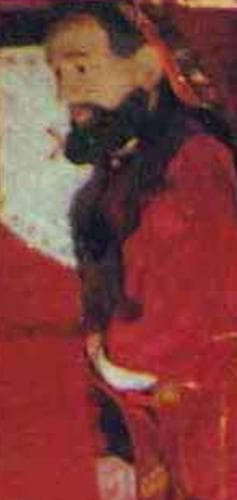
Blessed Enrico Comentina
Blessed
Feast Day: January 17
Death: January 1, 17
Biography
Blessed Enrico Comentina, also known as Enrico of Asti or Henry, was born to the nobility. He entered the service of the Catholic Church and became a papal auditor, diligently fulfilling his duties with integrity and devotion. In recognition of his skills and dedication, Enrico was appointed as the Bishop of Negroponte, an important post within the Church.
During his tenure as the Bishop of Negroponte, Enrico's exceptional diplomatic skills and deep knowledge of the Greek and Latin Churches led to his appointment as a papal legate in Asia Minor. In this role, he tirelessly worked towards the union of the two Churches, aiming to bridge the divide between Eastern and Western Christianity.
In 1339, Enrico's dedication to the Catholic faith was further acknowledged when he was appointed as the Patriarch of Constantinople. This prestigious position allowed him to continue his efforts in promoting unity and understanding between the Greek and Latin Churches.
Enrico's commitment to defending and spreading the faith led him to negotiate an alliance between King Hugh IV of Cyprus and the Knights Hospitaler against the Turks in 1342. This alliance aimed to protect Christian territories from the advancements of the Turkish forces, demonstrating Enrico's strategic acumen and strong determination to defend his fellow Christians.
Recognizing Enrico's fervor and capabilities, Pope Clement VI appointed him as a papal legate in the crusade against Smyrna. As he celebrated Mass, the ultimate act of devotion, Enrico was martyred, beheaded in Smyrna, Turkey, on January 17, 1345.
After his death, Enrico's relics were transported to the church of San Francesco in Asti, Italy in 1392. Miraculously, the urn containing his relics was saved during a storm, leading to Enrico being recognized as a "saint of the water." This led to his patronage when water needs to be controlled, whether it be for irrigation or protection against floods.
In recognition of his sanctity and the miracles attributed to him, Enrico's remains were re-interred under the altar in the Cathedral of Santa Maria Assunta in Asti in 1801. Though he has not been officially canonized, Enrico remains a blessed individual, revered for his commitment to promoting Christian unity, his diplomatic skills, and his courageous martyrdom.